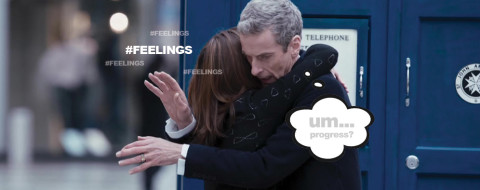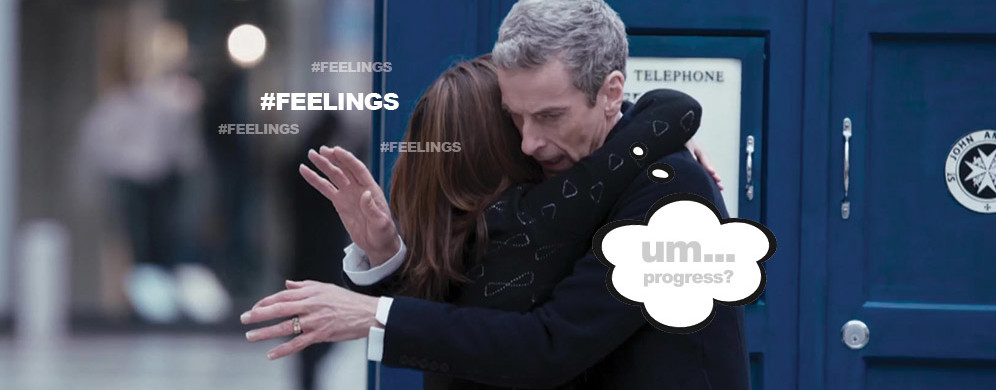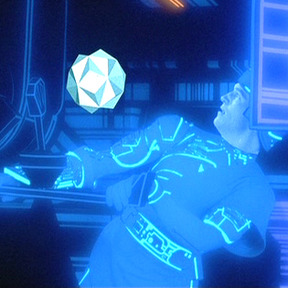Project Communication for Borderline Incompetents


Let’s say you’re something like me. You have a very full heart and a lot of big feelings about the things that you love. When you care, you care deeply. And you’ve never had issues with expressing yourself and your feelings. You speak your mind.
That’s one reason you suck at project communication.
If you’re like me, when you were young, writing was an escape. You had your notebooks and your stories and your drawings and you have always taken a lot of comfort in creative expression. Writing has always been a cathartic release for the things that plague you. After all, that’s how you got into this mess as a working creative, right? How you developed these skills? Yes and yes, part of who you are.
Another factor to you sucking at project communication.
You might be something like me, and finding yourself having issues with project communication, some might even say you suck at it. A willingness to express feelings and an ability to play with words are both admirable traits, but not so useful when you to sit down and write your client or your manager an email at the end of the day.
Reality Check
The Creative Mega-Industry, a polycraft supersystem that encompasses all of design (Beyond graphics? Products [ie golf shoes and everything in your kitchen], product packaging [everything in your recycling], architecture, etc etc etc), sound and foley, video and film, websites and apps, albums and brochures, ancient relics called books, and all other methods of communicating ideas in word, sound and substance for an earned income, at the end of all of that, it is a business.
 usually not required
usually not requiredDon’t be so clever when you’re writing that email; Nobody cares.
Seriously.
And I have been so guilty of this myself. I’ve been responsible for crazy volumes about how excited I was about the project, ideas I had, what we could do next, yadda yadda ya. I even had clients saying things to me, “dude, put everything I need to know in the first two sentences” or “i love the work but you should really just start a blog”. And I still occasionally find myself doing it, if there is a genuine emotion behind it, I’ve figured out a few ways to rein it in.
The truth is that nobody wants you journalling at them. They’ll read your online thing if they are so inclined, they opt in by choice. That’s where your super floral crap should live. When you do it in the inbox, when you hold them hostage in the churning colon of a digital workday, that’s just spam.
But what if that’s how you write? You write like you talk, right? Right. But how you talk with your buddies or your online circles is not how you should be speaking about a project. Or with a client. Your client can become your buddy, but that rarely happens by making them read drawn out Faulknerian monologues on The Future of The Grand Endeavor.
DELETE
I once had it pointed out to me by Ben Diggles that the best thing you can do when having difficulty writing important emails is to give yourself the time to review the need, especially if you have a lot of emotion. Emotion is the enemy.
His strategy was to write two emails, the first has all of the crap that you need to get out, that’s for you. Give that a beat or two… good time to do it is at the end of the day, when you’re already tuckered and salty due to the other excitement in your career. Then, after a good night’s rest and a fresh day on, come back to what it is that you need to communicate, write it out with zero emotion, and that’s that.
 feelings?
feelings?“Zero emotion?” you will say… “I cannot do this thing. You ask too much.”
Not really.
It doesn’t matter how you feel about the project, it never does. The only things that ever matter are how close it is to the finish line and what the budget is looking like. That’s it. Everything else is pretty irrelevant, especially any emotional content. If there’s tension on a project, everyone is already aware. Addressing it in the middle of everything is not going to help anything.
Let’s take a look at a terrible example of an end-of-week email on a project on fire:
This email is horrible because the overall tone is medium-warm to bleak, with both whininess and passive aggressive undertones. There’s also a lot of emotional content, it’s all framed in the tone of how the writer is feeling. I kind of hate this human and ONLY want to converse with them by email.
Let’s take a look at a message that communicates the same essentials:
This email addresses the same issues, with an overall positive tone. The one statement of “I feel” speaks with confidence to project completion. The rest is a statement of facts. The weekend jog won’t take long and it’s not a big deal, no need to make it out to be one. If there are issues with the designer, you’ve already set up that conversation to be cordial and recognizing them as showrunner for visual. If there are larger issues that have preoccupied you (ie having your tone in a call interpreted), you’re setting the stage for a post-completion post mortem to work through any issues that came up on the project. If there was a tone and a moment or whathaveyou, miles of good will is re-claimed through results.
Never ask someone to hand hold you in the middle of a project, this life is not about getting affirmation from our clients. It’s about delivering results. If there is a conversation to be had about something that happened on a project, that lives in the post mortem, AFTER delivery.
Cut to the Chase
What is actually happening? That is what needs to be conveyed. Not emotional analysis. You don’t feel terrible about the project running over timeline, you are aware of the issues that caused the slip and are working to ensure that the project does not slip further. You never feel terrible about anything, you address the problems head on and present solutions or logic towards solutions.
 brevity bene
brevity beneHow far is the project from completion? How is the budget looking on the current bottom line? What other issues are pressing and what are the solutions to those issues? That is what your email should have. Clear language about what is happening, anything negative should be replaced with something neutral. If there is no neutral way to frame the negative, is it really something that can’t wait until the project is over?
Good project communication is about brevity. If it only takes two sentences to relay the relevant information, you only need to write those two sentences.
Have a great weekend!
D
Doctor Who is property of the British Broadcasting Corporation, and thank you.
TRON is property of Disney.

